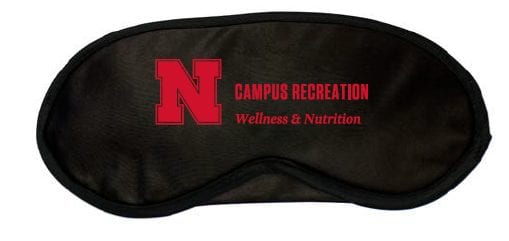The Sleep Program at UNL addresses one of the necessary elements for student success. Steve Woita and Jennifer Beres share the details.
Studies show 60% of college students suffer from poor sleep quality, according to Steve Woita.
As the assistant director for Fitness and Wellness at the University of Nebraska-Lincoln (UNL), Woita shared as a department they focus on physical well-being. Sleep plays a vital role in that as adequate sleep is essential for functioning in the classroom.
With this in mind, Campus Recreation created a free three-week Sleep Program that launched March 1, 2021.
UNL Sleep Program: The Details
Participants of the sleep program received:
- Weekly newsletters focused on the importance of sleep, tips for sleep habits and sleep hygiene. Here is an example of a page from the newsletter.
- Tracking guides along with goals and self-led reflections for each week.
- Other suggested activities like virtual sleep meditation and yoga for sleep.
- A sleep mask for all participants.
- Weekly raffles of prizes for completing exercises.
“We hope to educate students about sleep hygiene and help them become aware of their habits and how sleep affects their life,” said Woita.
Jennifer Beres, the graduate assistant for Wellness Services, has been an integral part of making the program happen. She hoped students would learn about the importance of sleep, how it can affect their bodies/daily routines, and how they can improve their quality and quantity of sleep.
“The information included is important for students as sleep is something our bodies need, and a lack of sleep can have a negative impact on a student’s ability to succeed academically,” said Beres.
Two Tips on Hosting a Sleep Program
Both professionals shared their biggest pieces of advice for those looking to implement a similar program:
- “With all programs, marketing, incentives and learning objectives are important considerations,” said Woita. “We are providing incentives such as sleep masks for all participants and weekly raffles of prizes for completing exercises.”
- “In the program, we focused on energy levels as that will be a sign of quality sleep,” said Beres. “We also intentionally are not asking participants to submit things of a personal nature as we didn’t want to create barriers.”











